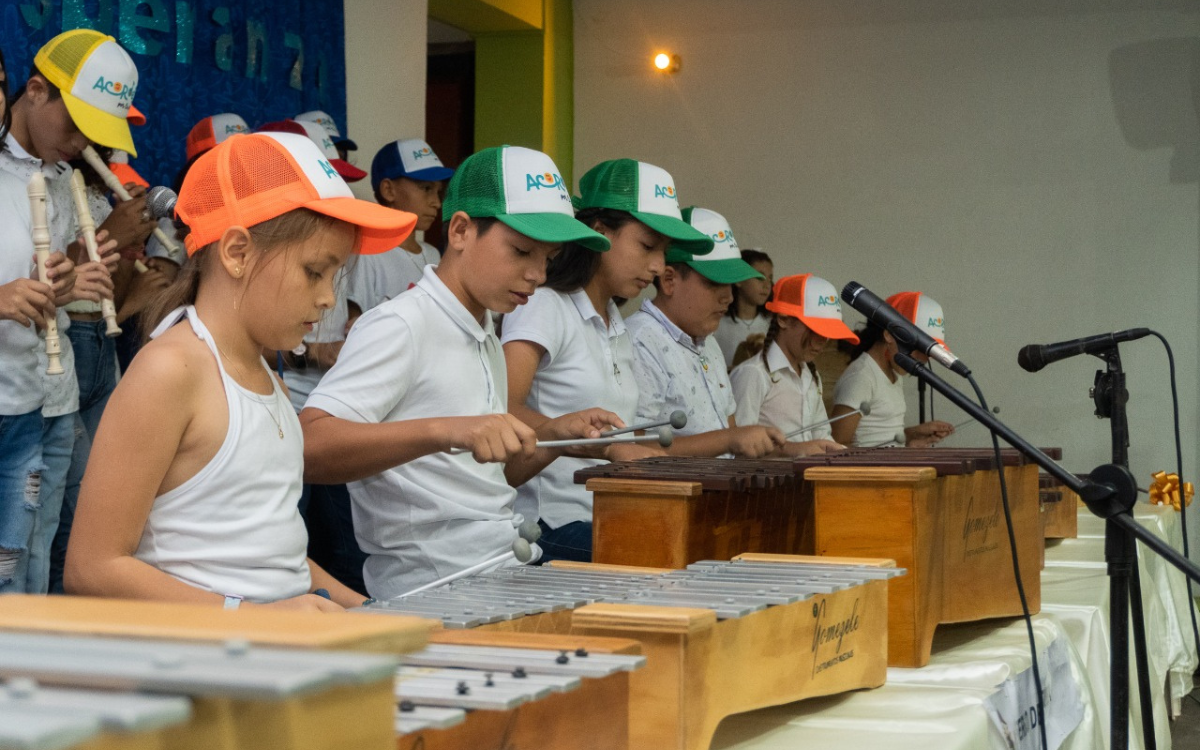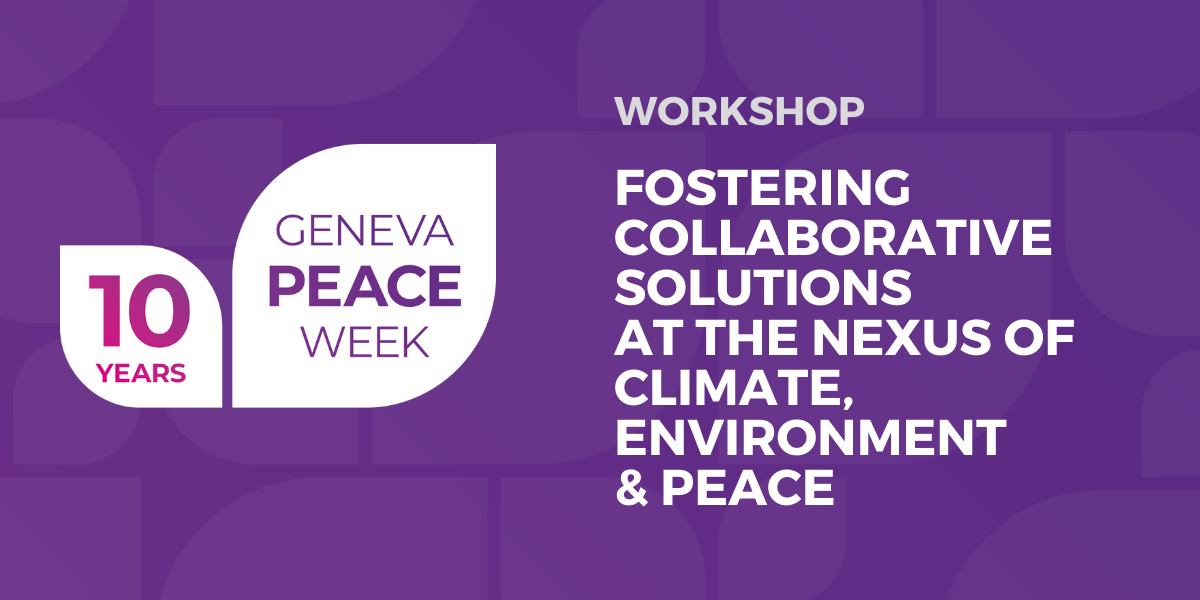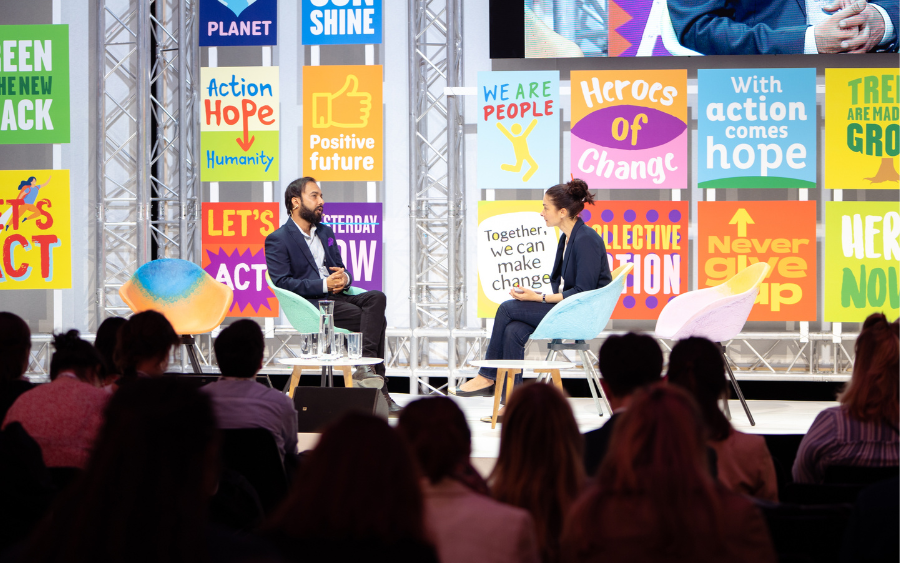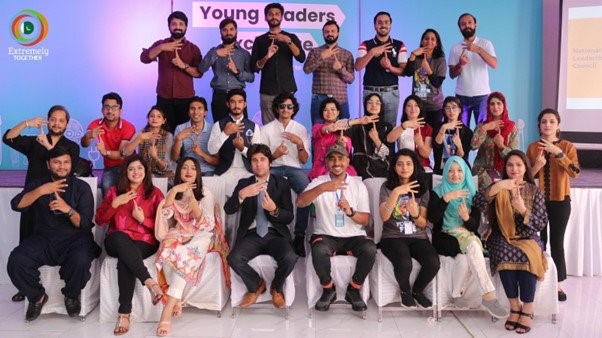OPINION: Women’s participation in peace processes – is it enough?
Guaranteeing the inclusion of women in peacebuilding processes in quantitative terms is not a synonym for meaningful participation. Belén Grau Contreras explains why we must also focus on the quality of their involvement to create a game-changing impact both in peace-making and peacebuilding.
We need to have a conversation about the participation of women in peacebuilding processes.
There is consensus on the need for enhanced implementation of international standards related to the inclusion of women in building peace. But, do we honestly care about the quality of their participation? The answer is: not enough.
The inclusion of women in peacebuilding cannot be a mere box-ticking exercise. Women should be included in every phase of peacebuilding with a long-term revolutionary goal of interrogating patriarchal norms and other structural fault lines that are usually at the heart of conflict. We need processes that promote and value the infinite power of women’s agency, as highlighted in Challenging the Conventional: Making Post-Conflict Reconciliation Succeed.
The report, produced by the Kofi Annan Foundation and Interpeace, emphasises that “it is the quality of women’s participation rather than the quantity that is significant to the overall success of peace agreements.[1]” The report also highlights that “fostering women’s participation in reconciliation processes can facilitate the development of public debate around the transformation of negative gender paradigms that are often associated with − and in some cases underpin − polarizing and conflictual socio-political dynamics.[2]”
The UN Security Resolution 1325 on Women, Peace and Security, launched in 2000, aimed at addressing the situation of women in conflict and their inclusion in the peacebuilding agenda. Today, 20 years later, women remain underrepresented in peace efforts while being disproportionately affected by conflict and violence[3]. That said, aiming only for a widespread commitment by member states to better implement this agenda is a rather conformist victory.
There is no development strategy more beneficial to society as a whole – women and men alike – than the one which involves women as central players.
– Kofi Annan
 Inclusion for the right reasons
Inclusion for the right reasons
As a first step towards the meaningful participation of women in shaping peace, peacebuilders need to include women for the right reasons. Yet, too often, their inclusion is based on assumptions that reproduce stereotyped gender roles:
1. Participation does not necessarily mean meaningful involvement
It has been alleged that women need to be included in peace negotiations given the natural tendency of females towards convening dialogue, providing empathy and acting as neutral peace negotiators[4].
However, do women need to be included in decision-making just as a means to an end (i.e. higher probability of peace negotiations to succeed given to their alleged ‘empathy superpowers’.)? Or do they need to be included simply because their voice is equally valuable? Good intentions are not enough, and participation alone does not necessarily mean meaningful involvement in peacebuilding processes.
2. Women are more than victims of gender-based violence during conflict
At times, women have been included in peacebuilding decision-making to exclusively deal with gender-based violations, while remaining excluded from all other issues discussed in the peacebuilding process. This practice suggests that women must be part of peace negotiations insofar as their victimization during conflict. It is crucial to understand that women are more than victims of gender-based violence during conflict.
Women are agents of change and long-term transformation. The case study in Northern Ireland, as mentioned in the Kofi Annan Foundation’s report, is an encouraging example demonstrating the importance of women’s participation in developing a complete historical narrative of the conflict –one that does not only reflect the armed groups’ perspectives – and in allowing for greater ownership of the peace process.[5]
3. Representation of women should not be based on perceived gender roles
The last problematic justification comes from the extended idea that women need to be included because they are the primary community’s caregivers.[6] This justification is due to women’s central role in managing inter-communal relationships and the general perception of women as less threatening and more inclined to engage in dialogue than men. Representation under the rationale of traditionally established or perceived gender roles, albeit pragmatic, might only serve short-term goals.
Suppose women’s participation does not aim to be transformative and meaningful. In that case, the risk of receiving backlash against ulterior feminist reforms – such as the one observed in Guatemala – becomes part of the problem more than part of the solution.
Beyond these problematic justifications of women’s participation, it is important to realise that, as evidenced in the Guatemala and DRC case studies, women are key components of strong coalitions for peace and valuable agents for change. Still, women are not a means to an end; they are ends in themselves. Women are peacebuilding forces deserving of an equal space across all sectors of peacebuilding and to be included for the right reasons.
– Belén Grau Contreras, Transitions to Peace and Promoting Youth Leadership Intern at the Kofi Annan Foundation
…
References
[1] Kofi Annan Foundation, 2018. Challenging The Conventional: Making Post-Violence Reconciliation Succeed. <kofiannan.ch/reconciliationreport>
[2] Idem
[3] Monica McWilliams & Avila Kilmurray, From the Global to the Local: Grounding UNSCR 1325 on Women, Peace and Security in Post Conflict Policy Making, 51 WOMEN’S STUDIES INT’L FORUM 128, 130 (2015).
[4] Inclusive Security, 2016. WHY WOMEN? Inclusive Security And Peaceful Societies. <https://www.inclusivesecurity.org/wp-content/uploads/2020/02/Why-Women-Brief-2020.pdf>
[5] Kofi Annan Foundation, 2018. Challenging The Conventional: Making Post-Violence Reconciliation Succeed. <kofiannan.ch/reconciliationreport>
[6] E-International Relations. 2020. Does The Inclusion Of Women In Peace Building Processes Make A Difference? <https://www.e-ir.info/2016/07/07/does-the-inclusion-of-women-in-peace-building-processes-make-a-difference/>
 Inclusion for the right reasons
Inclusion for the right reasons


